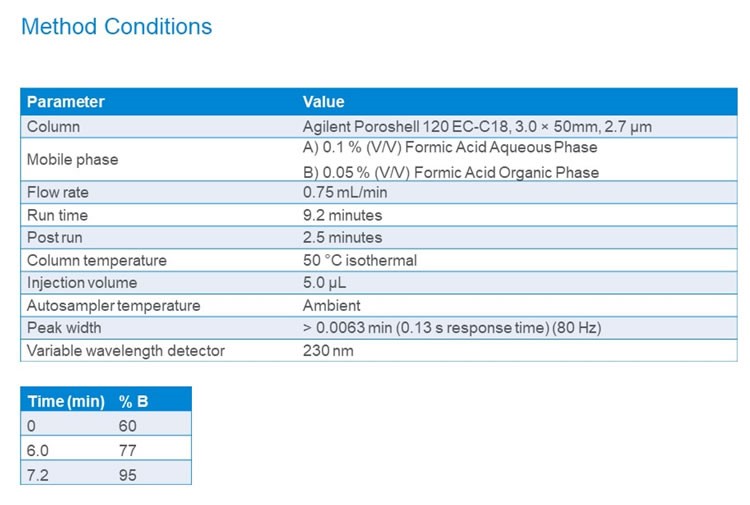With the legalization of cannabis slowly establishing its acceptable consumption or use in certain countries, cannabis product manufacturers are upscaling, commercializing, and driving related safety and quality testing. As part of this, they routinely provide information about the potency of the plant cannabinoids present in these products, especially the two most common of these: THC and CBD. It is important for consumers to be informed about the levels of each, since these impact the effects of the product, whether taken for medicinal or recreational use.
Cannabis potency testing is therefore becoming a common goal in testing labs, with HPLC being a go-to technique for this purpose. To meet the needs of this market, Agilent believes that customers are looking for a potency testing solution that must achieve the following goals:
- The LC instrument solution must be competitively priced
- It must be able to chromatographically resolve the 11 most common cannabinoids
- Analysis must be relatively fast
- LOQ should be at 0.5 ng to allow for detection in highly diluted samples
- Interday and intraday quantitative precision of < 5 % RSD should be achievable
- It should deliver cross-instrument reproducibility
Taking these considerations into account, Agilent recommends the InfinityLab 1220 Infinity II Gradient LC VL, one of three 1220 models. It is an affordable, integrated tower system that can be used to provide relatively rapid quantification of cannabinoids for quality, safety, and compliance. The system includes a gradient pump with a maximum pressure of 400 bar, and an integrated degassing unit, autosampler, column oven, and variable wavelength detector with a standard flow cell.
The Agilent InfinityLab Poroshell 120 EC-C18 (3.0 x 50 mm, 2.7 µm) column delivers high flow rates and reduced backpressure. It also offers ruggedness thanks to the built-in 2 µm frit to protect from particulates. The column is packed with superficially porous particles that have solid silica cores and porous outer layers. This type of particle provides high efficiency at lower pressures when compared to small, totally porous particles.
Using this equipment, the following settings were found to be most effective when analyzing all 11 cannabinoids.
Agilent OpenLab Chromatography Data System (CDS, version 2.2) provides ease-of-use for acquiring and analyzing data, presenting views that link a sequence and a data file within the sequence with the compound of interest.
Agilent offers some of the most complete workflows and instrumentation to achieve unparalleled sensitivity and reliability for a broad range of applications. These include, besides potency testing, analysis of pesticides, residual solvents, heavy metals, and terpenes in cannabis samples. With the complex and rapidly changing laws around medicinal and recreational marijuana use, Agilent instrumentation is at the forefront of efforts to ensure quality control, and to conduct screening and research.
Agilent products and solutions are intended to be used for cannabis quality control and safety testing in laboratories where such use is permitted under state/country law.
Agilent products and solutions are intended to be used for cannabis quality control and safety testing in laboratories where such use is permitted under state/country law.
Keywords; Chromatography Data Systems; InfinityLab Poroshell; cannabinoids


